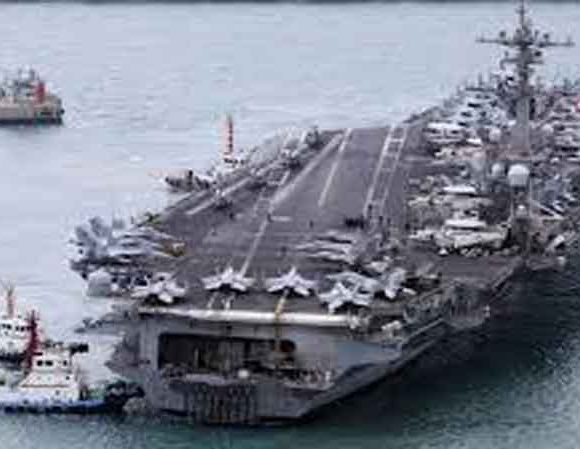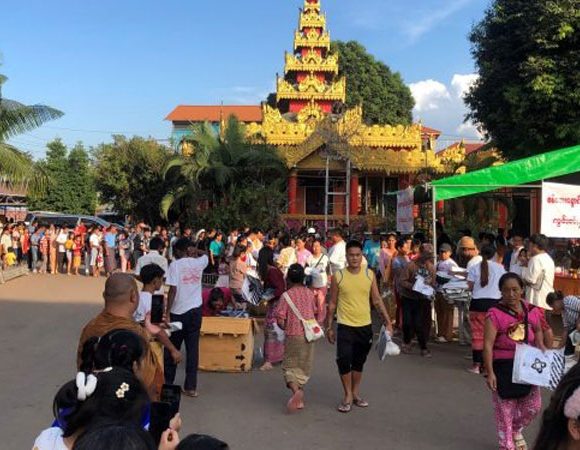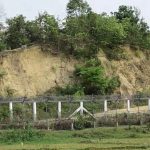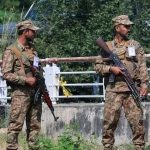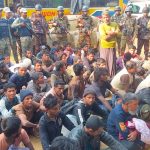Myanmar junta extends state of emergency, signalling poll delay
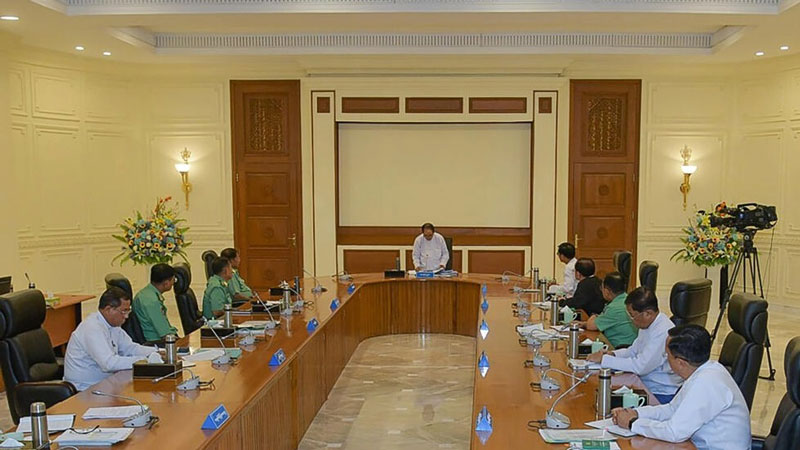
NEWS DESK
The Southeast Asian nation has been ravaged by deadly violence since a coup deposed Aung San Suu Kyi’s government more than two years ago, unleashing a bloody crackdown on dissent that has sparked fighting across swathes of the nation while tanking the economy, AFP reports.
Junta chief Min Aung Hlaing acknowledged that much of the nation is not under full military control, according to state media.
The junta-stacked National Defence and Security Council (NDSC) agreed to prolong the state of emergency that was declared when the generals toppled Aung San Suu Kyi’s government.
The “state of emergency period would be extended another six months starting from August 1st”, state media quoted Acting President Myint Swe as saying.
Myanmar’s military-drafted 2008 constitution, which the junta has said is still in force, requires authorities to hold fresh elections within six months of a state of emergency being lifted.
The junta had previously promised fresh polls by August of this year.
Min Aung Hlaing said fighting continued in Sagaing, Magway, Bago and Tanintharyi regions as well as Karen, Kayah and Chin states.
“We need for a time to continue our duty for systematic preparation as we shouldn’t hold coming elections in a rush,” he told the gathering, according to MRTV.
‘Never-ending nightmare’
The army ruled Myanmar for decades after independence from Britain in 1948, and dominated the country’s economy and politics even before the coup.
Myanmar remains mired in weekly bomb blasts and fighting, with thousands of civilians caught up in the violence.
On the day of the announcement one person was killed and some 12 wounded in a blast near a checkpoint in the southeast, according to an official.
“The nightmare for the Myanmar people is never-ending is the one thing observers should take away from this latest SAC junta announcement,” Phil Robertson, Human Rights Watch deputy Asia director, told AFP, using an acronym for the junta’s official name.
He urged the international community to do more.
“The military junta is prepared to fight to the last to hold on to power, regardless of how much blood is shed and suffering is caused.”
The junta had already extended the emergency ordinance this year in February, a day after the NDSC said the situation had “not returned to normalcy yet”.
Min Aung Hlaing said at the time that the military did not “fully control” more than a third of Myanmar’s townships.
Anti-coup “People’s Defence Forces” that sprang up to overturn the coup have surprised the junta with their effectiveness, analysts say, and have dragged the military into a bloody quagmire.
Junta groups have torched villages, carried out extrajudicial killings and used air strikes and artillery bombardments to punish communities opposed to its rule, opponents and rights groups say.
Min Aung Hlaing hinted in July the military might further extend a state of emergency and delay promised elections, saying greater efforts were needed to end unrest.
After her government was deposed, Suu Kyi, 78, was convicted in a series of trials that rights groups slammed as a sham, and sentenced her to 33 years in prison.
Thailand’s foreign minister said this month that he met with Suu Kyi, her first known meeting with a foreign envoy since the 2021 coup.
Diplomatic efforts to end the conflict led by the United Nations and the Association of Southeast Asian Nations regional bloc have stalled, with the military refusing to engage with its opponents.
The military’s crackdown on dissent has killed more than 3,800 people and seen more than 24,000 arrested, according to a local monitoring group.
The junta says more than 5,000 civilians have been killed by “terrorists” since it seized power.


